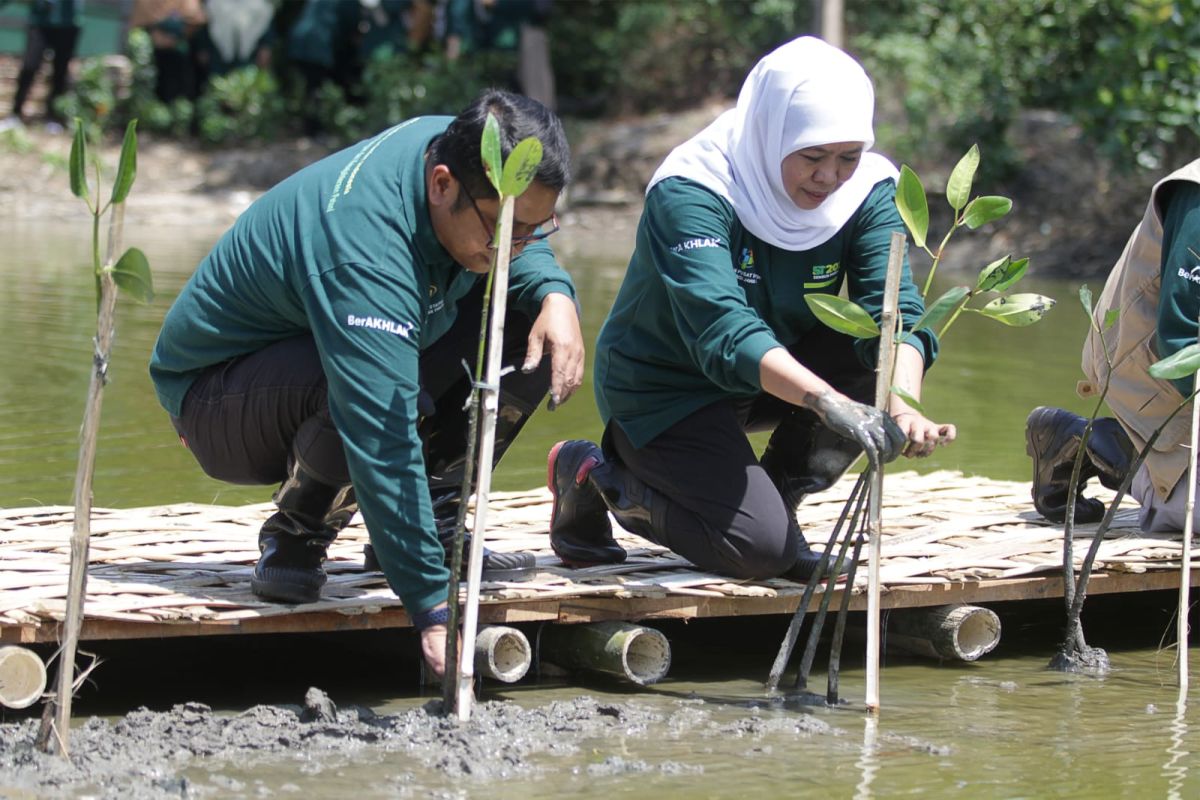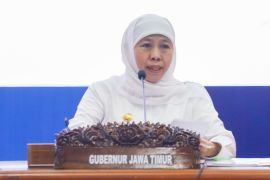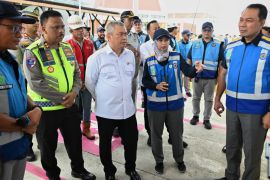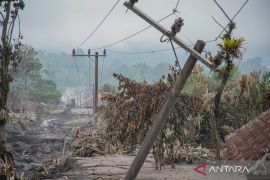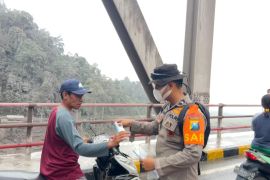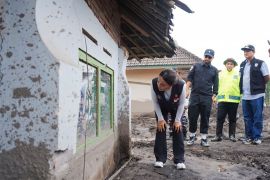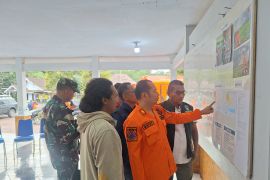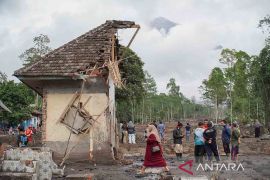Surabaya, East Java (ANTARA) - East Java Governor Khofifah Indar Parawansa on Monday underlined the importance of “one data” and Big Data in the policy-making process of the provincial authorities.
"This ‘one data’ will be part of improving the acceleration of effectiveness, efficiency, and accountability of various development policy-making processes in East Java. Thus, all services within the scope of the East Java government will be more integrated," she explained during the commemoration of the 2022 National Statistics Day at Mangrove Gardens, Rungkut, Surabaya, on Monday.
‘One data’ will allow for accurate, up-to-date, integrated, and accountable data, she added. Thus, policy-making, especially for social protection programs and community empowerment, could be conducted in a more effective and efficient manner.
"This ‘one data’ is important to support the planning and development of East Java and pursue public services and realize people's welfare, in line with the implementation of One Indonesia Data (SDI) in the implementation of the National Statistical System (SSN)," she elaborated.
She described “one data” as very important, especially for the distribution of aid as part of social protection programs, considering that, at the moment, several such programs have been rolled out due to inflation and rising fuel prices.
"So, having one accurate data can prevent the assistance from being sent to the wrong people," she said.
Parawansa then outlined two foundations of social protection: first, data updation that is, the data must be highly accurate, complete, and cover the entire population, and second, integration between programs.
"Data collection activities will greatly determine the validity of community data pertaining to social and economic conditions in an integrated and accurate manner," she stressed.
Head of East Java Statistics Indonesia, Dadang Hardiwan, said that on the commemoration of National Statistics Day, his administration also planted mangrove seedlings and threw fish seeds as part of an initiative that was carried out simultaneously in 38 districts and cities of East Java.
"This activity is one of the efforts to get closer to data respondents. Particularly, respondents who are related to agricultural stuff, such as food crops, horticultural crops, plantation crops, livestock, forestry, and fisheries. This is for the success of the Agricultural Census, which will be conducted next year, " he added. (*)


